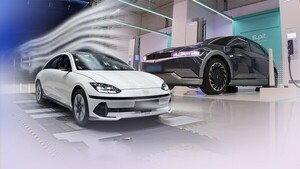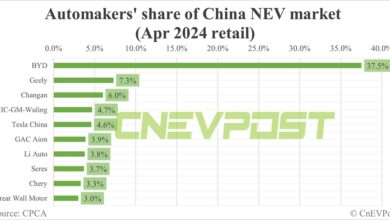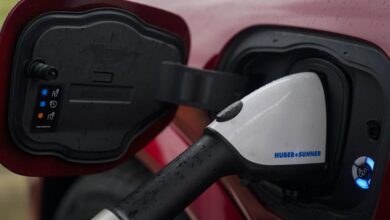Automakers Facing Headwinds from Chasm in Electric Car Market

After years of double-digit growth, the global electric vehicle market is entering a chasm, considered to be a slowdown in demand just before mass adoption. Global automakers that have been aggressively investing to expand their electric vehicle lineups are scrambling for survival by making use of a large-scale restructuring.
“After a careful review of our organization, we have made a difficult decision to cut our workforce by more than 10 percent globally,” Tesla CEO Elon Musk said in an email to employees, according to Reuters and other foreign media outlets on April 16 (local time). Tesla’s layoffs are expected to force 14,000 employees to leave the electric car giant. At the end of 2023, Tesla’s total workforce stood at about 140,000. The restructuring also includes those at executive-level positions.
Tesla’s massive restructuring is largely due to a drop in sales as demand for electric vehicles has slowed down. Tesla delivered only 386,810 units in the first quarter. It was the first time in four years since 2020 that Tesla’s quarterly deliveries declined year over year.
Tesla is not alone in having difficulties among electric car makers. The global electric vehicle market is in a slump due to high prices compared to the market of cars with internal combustion engines, a lack of charging infrastructure, and rising electricity bills. With the addition of a race to cut prices, a game of chicken is unfolding in the global electric vehicle market. The possibility of a prolonged period of the chasm has led to the rise of an EV market adjustment theory in the automobile industry.
General Motors (GM) laid off 1,300 production workers last year. The move came after GM said it would delay production of an electric pickup truck until 2025. Ford cut 1,400 jobs at its U.S. electric vehicle factory in January. U.S. EV startup Livian notified its employees in February of a 10 percent cut in its workforce. Germany’s Volkswagen Group is restructuring to save 10 billion euros in costs by 2026. Fisker, the American company dubbed “the next Tesla,” was scratched off the New York Stock Exchange.
Many automakers have slowed their transition to electric vehicles. Mercedes-Benz CEO Ola Kallenius recently told the press that the carmaker will delay its electrification goal by five years and improve its internal combustion engine models. Ford has delayed the launch of a three-row sports utility electric vehicle at its plant in Ontario, Canada by two years from 2025 to 2027.
The auto industry is likely to remain hybrid-centric for the foreseeable future. Kia recently announced that it will strengthen its lineup of hybrid models in response to a slowdown in demand for electric vehicles. It aims to build a total of nine lineups by 2028. GM laid out a plan earlier this year to introduce PHEV models in North America.



